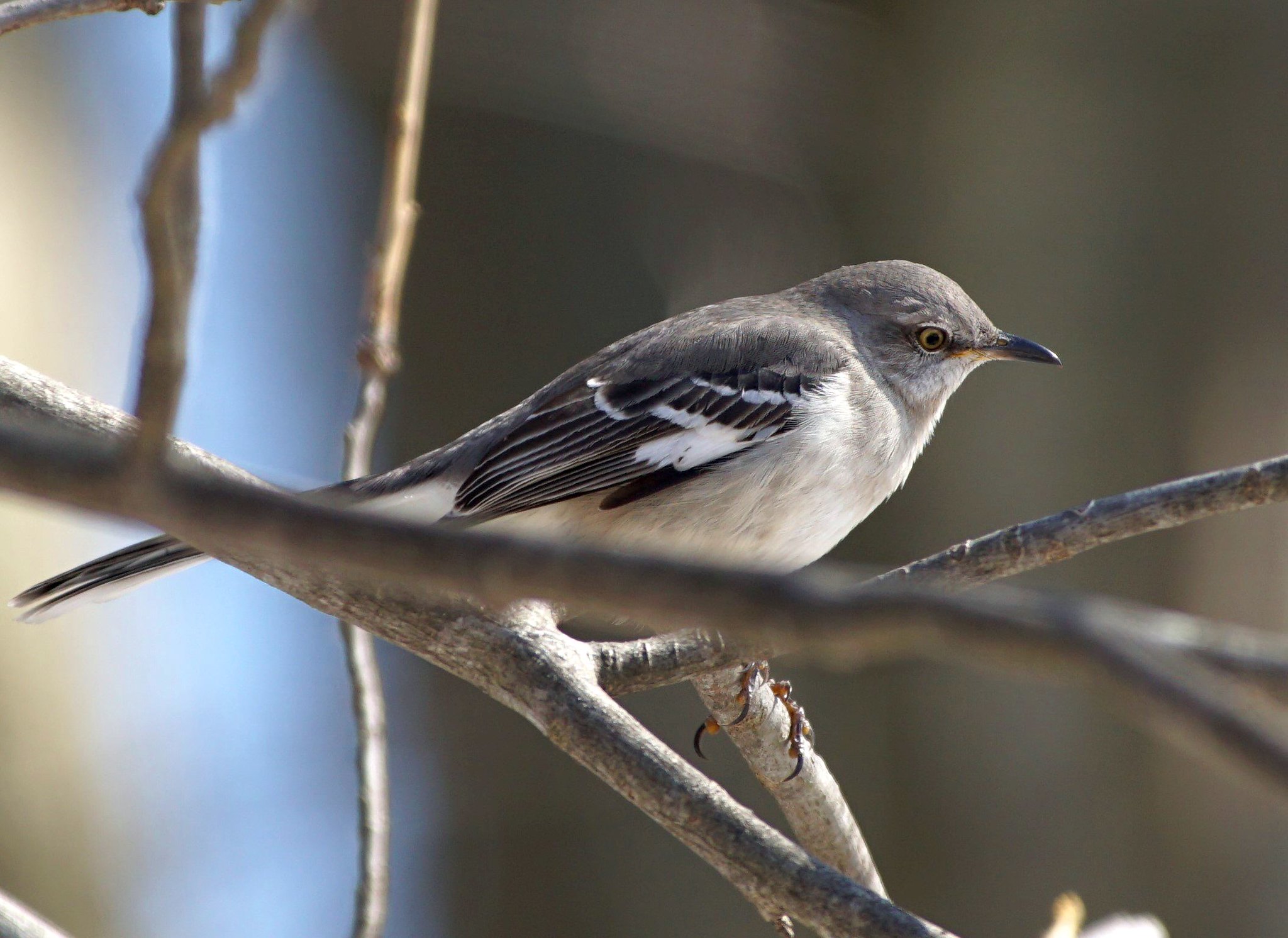
Mocking Birds: When Mocking is Good
By Cheryl Conley, Lake Creek Nature Preserve Board of Directors
Texas is the home of many firsts. Some are more well-known than others like being home to the first domed stadium. It was named the Astrodome and it opened in 1965. Another example is being the location of the worst natural disaster is US history—the hurricane that hit Galveston in 1900 that killed over 8,000 people. Lesser-known firsts are the invention of the frozen margarita in Dallas in 1971. That person should be given a medal! Pecos, Texas, was home to the first rodeo in 1883. The word “superbowl” was first used in Texas in 1966. In 1927, Texas became the first state to designate a state bird. The Texas Legislature decided the northern mockingbird would be the most appropriate to hold the title because it is “a fighter for the protection of his home, falling, if need be, in its defense, like any true Texan.” There are now four other states that have named the mockingbird their state bird--Tennessee, Florida, Mississippi, and Arkansas.
From the late 1700’s to the early 1900’s, mockingbirds were captured and sold as pets. It is believed that this is the reason the birds became scarce during that time, almost to the point of extinction. Mockingbird populations are now stable.
“Mockers” got their name from their ability to imitate the sounds of other animals. The scientific name for this bird is Mimuspolyglottos which means "many-tongued mimic." Males sing day and night and especially enjoy vocalizing on moonlit nights. Amazingly, not only can they whistle and trill, they can mimic other sounds like a creaking gate, a dog barking, a chirping cricket and frogs and toads, repeating each sound three to six times.
Mockers are fearless when protecting their nests. During nesting season, they will fearlessly chase away predators by diving at them, flapping their wings and pecking at them. One observer reported seeing a mocker deliver 30 minutes of repeated blows to the head of a snake in an attempt to protect its nest. There are many stories of mockingbirds dive-bombing cats and dogs. Real or imagined, it doesn’t seem to matter how large the predators are. The mockingbird will take them on! In many instances, the animals aren’t even posing a threat. You might even see a mockingbird chasing squirrels. It’s as if the birds enjoy teasing other animals. Think they won’t dive-bomb you? Yes, they will.
During mating season, males will lift their wings to display his white underparts. He’ll move his tail up and down, make a soft cooing sound and may even try to impress the female by running back and forth in front of her with a twig.
Both males and females share nest-building activities. The male will gather nesting materials and the female will build the nest. The nest can be completed in as little as one day or it can take three or four days. The female will lay up to six eggs and incubation is from ten to fourteen days. The babies stay in the nest for about a week while both mom and dad care for them. The young ones stay close by for several more days before gaining their independence.
Other fun facts about the northern mockingbird:
- Mockingbirds have adapted to city life. Lawns and parks make perfect hunting grounds for insects.
- They are about 9 to 11 inches long. Males and females look identical but the female is a little smaller and has a little less white in her feathers.
- A female mocker set a record of laying 27 eggs in one season!
- In the book Birds of America, John James Audubon wrote about the bird’s singing ability. He wrote, “There is probably no bird in the world that possesses all the musical qualifications of this king of song, who has derived all from Nature’s self.”
- There are sixteen bird species with the name “mockingbird.” The northern mockingbird is the only one native to the United States.
Take some time to stop and listen to nature. Chances are you’ll hear a mocker.
 |
|
|
Written by: Cheryl Conley
Cheryl currently sits on the Board of Directors for the Lake Creek Greenway Partnership. She is also currently working with a Montgomery County Commissioner on a new nature center/wildlife center. Previously, she was the president of TWRC Wildife Center and Vice President of Friends of Texas Wildlife. Cheryl is a State of Texas permitted wildlife rehabilitator.
|



